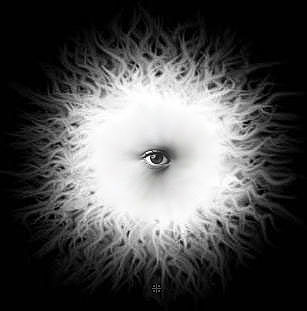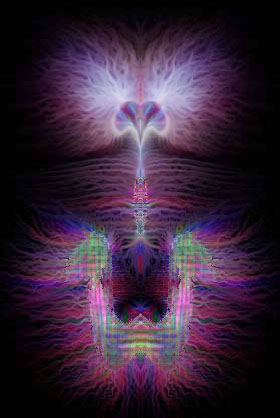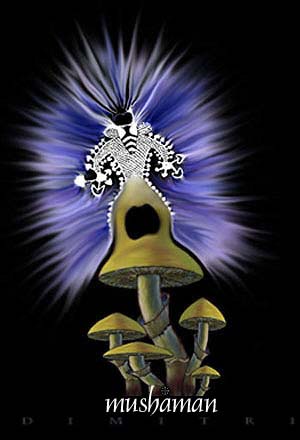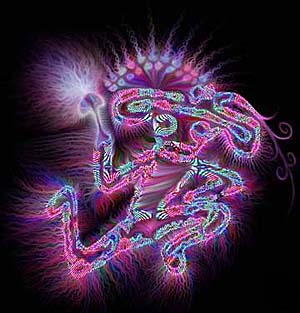These difficulties in communicating have played their part in certain amusing situations. Two psychiatrists who have taken the mushroom and known the experience in its full dimensions have been criticized in professional circles as being no longer "objective."
Thus we are all divided into two classes: those who have taken the mushroom and are disqualified by our subjective experience and those who have not taken the mushroom and are disqualified by their total ignorance of the subject.
I am profoundly grateful to my Indian friends for having initiated me into the tremendous mystery of the mushroom.

 Of alcohol they speak with the same jocular vulgarity that we do. But about mushrooms they prefer not to speak at all, at least when they are in company and especially when strangers, white strangers, are present.
Of alcohol they speak with the same jocular vulgarity that we do. But about mushrooms they prefer not to speak at all, at least when they are in company and especially when strangers, white strangers, are present.
Then, when evening and darkness come and you are alone with a wise old man or woman whose confidence you have won, by the light of a candle held in the hand and talking in a whisper, you may bring up the subject.
They are never exposed in the marketplace but pass from hand to hand by prearrangement.
 The Aztecs before the Spanish arrived called them Teonanacatl, God's flesh. I need hardly remind you of a disquieting parallel, the designation of the elements in our Eucharist:
The Aztecs before the Spanish arrived called them Teonanacatl, God's flesh. I need hardly remind you of a disquieting parallel, the designation of the elements in our Eucharist:
"Take, eat, this is my body ...", and again, "Grant us therefore, gracious Lord, so to eat the flesh of Thy dear son..."
The orthodox Christian must accept by faith the miracle of the conversion of the bread into God's flesh: That is what is meant by the Doctrine of Transubstantiation.
|
By contrast, the mushroom of the Aztecs, carries its own conviction; every communicant will testify to the miracle that he has experienced. |
In the language of the Mazatecs the sacred mushrooms are called 'nti si tho. The first word, 'nti, is a particle expressing reverence and endearment. The second element means "that which springs forth."
 "The little mushroom comes of itself, no one knows whence, like the wind that comes we know not whence nor why."
"The little mushroom comes of itself, no one knows whence, like the wind that comes we know not whence nor why."
For more than four centuries the Indians have kept the divine mushroom close to their hearts, sheltered from desecration by white men, a precious secret.
We know that today there are many curanderos who carry on the cult, each according to his lights, some of them consummate artists, performing the ancient liturgy in remote huts before miniscule congregations.
They are hard to reach, these curanderos.
Do not think that it is a question of money.
Perhaps you will learn the names of a number of reknown curanderos, and your emissaries will even promise to deliver them to you, but then you wait and wait and they never come.
You will brush past them in the marketplace, they will know you, but you will not know them.
The judge in the town hall may be the very man you are seekng: And you may pass the time of day with him, yet never learn that he is your curandero.
After all, would you have it any different? What priest of the Catholic Church will perform mass to satisfy an unbeliever's curiosity?
 Religion in primitive society was an awesome reality, "terrible" in the original meaning of the word, pervading all life and culminating in ceremonies that were forbidden to the profane.
Religion in primitive society was an awesome reality, "terrible" in the original meaning of the word, pervading all life and culminating in ceremonies that were forbidden to the profane.
Let me point out certain parallels between our Mexican rite and the mystery performed at Eleusis.
At the heart of the mystery of Eleusis lay a secret. In the surviving texts there are numerous references to the secret, but in none is it revealed.
From the writings of the Greeks, from a fresco in Pompeii, we know that the initiate drank a potion.
Then, in the depths of the night, he beheld a great vision, and the next day he was still so awestruck that he felt he would never be the same man as before.
What the initiate experienced was "new, astonishing, inaccessible to rational
cognition."
 It also seems significant that the Greeks were wont to refer to mushrooms as "the food of the gods," broma theon, and that Porphyrius is quoted as having called them "nurslings of the gods," Theotrophos.
It also seems significant that the Greeks were wont to refer to mushrooms as "the food of the gods," broma theon, and that Porphyrius is quoted as having called them "nurslings of the gods," Theotrophos.
They were not for mortal man to eat, at least not every day. We might be dealing with what was in origin a religious tabu...
I do not suggest that St. John of Patmos ate mushrooms in order to write the book of Revelation.
Yet the succession of images in his vision, so clearly seen but such a phantasmagoria, means for me that he was in the same state as one bemushroomed.
The advantage of the mushroom is that it puts many (if not everyone) within reach of this state without having to suffer the mortifications of Blake and St. John.
It permits you to see, more clearly than our perishing mortal eye can see, vistas beyond the horizons of this life, to travel backwards and forwards in time. To enter other planes of existence, even (as the Indians say) to know God.
All that you see during this night has a prisine quality: the landscape, the edifices, the carvings, the animals - they look as though they had come straight from the Maker's workshop.
This newness of everything - it is as if the world had just dawned - overwhelms you and melts you with its beauty.
All these things you see with an immediacy of vision that leads you to say to yourself, "Now I am seeing for the first time, seeing direct, without the intervention of mortal eyes."
 It is clear to me where Plato found his ideas. It was clear to his contemporaries too. Plato had drunk of the potion in the Temple of Eleusis and had spent the night seeing the great vision.
It is clear to me where Plato found his ideas. It was clear to his contemporaries too. Plato had drunk of the potion in the Temple of Eleusis and had spent the night seeing the great vision.
And all the time you are seeing these things, the priestess sings, not loud but with authority.
Your body lies in the darkness, heavy as lead, but your spirit seems to soar and leave the hut, and with the speed of thought to travel where it wishes in time and space, accompanied by the shaman's singing and by the ejaculations of her percussive chant.
What you are seeing and what you are hearing appears as one:
The music assumes harmonious shapes, giving visual form to its harmonies, and what you are seeing takes on the modalities of music - the music of the spheres.
All your senses are similarly affected:
The cigarette with which you occasionally break the tension of the night smells as no other cigarette before had ever smelled. The glass of water is infinitely better than champagne.
 The bemushroomed person is poised in space, a disembodied eye, invisible, incorporeal, seeing but not seen.
The bemushroomed person is poised in space, a disembodied eye, invisible, incorporeal, seeing but not seen.
In truth, he is the five senses disembodied, all of them keyed to the height of sensitivity and awareness, all of them blending into one another most strangely, until the person, utterly passive, becomes a pure receptor, infinitely delicate, of sensations.
As your body lies there in its sleeping bag, your soul is free, loses all sense of time, alert as it never was before, living an eternity in a night, seeing infinity in a grain of sand.
What you have seen and heard is cut as with a burin into your memory, never to be effaced.
At last you know what the ineffable is and what ecstasy means.
 The mind harks back to the origin of that word. For the Greeks ekstasis meant the flight of the soul from the body. I can find no better word to describe the bemushroomed state.
The mind harks back to the origin of that word. For the Greeks ekstasis meant the flight of the soul from the body. I can find no better word to describe the bemushroomed state.
In common parlance, among the many who have not experienced ecstasy, ecstasy is fun, and I am frequently asked why I do not reach for mushrooms every night.
But ecstasy is not fun. Your very soul is seized and shaken until it tingles.
After all, who will chose to feel undiluted awe, or to float through that door yonder into the divine presence?
The unknowing abuse the word, but we must recapture its full and terrifying sense.
As man emerged from his brutish past, thousands of years ago, there was a stage in the evolution of his awareness when the discovery of a mushroom (or perhaps a higher plant) with miraculous properties was a revelation to him, a veritable detonator to his soul, arousing in him sentiments of awe and reverence, and gentleness and love, to the greatest pitch of which mankind is capable, all those sentiments and virtues that mankind has ever since regarded as the highest attributes of his kind.
It made him see what the perishing mortal eye cannot see. The Greeks were right to hedge about the mystery, this imbibing of the potion, with secrecy and surveillance.
What today is resolved into the effects of a mere drug, a tryptamine or lysergic acid derivative, was for them a prodigious miracle, inspiring in them poetry and philosophy and religion.
 Perhaps with all our modern knowledge we do not need the divine mushroom any more. Perhaps we need them more than ever.
Perhaps with all our modern knowledge we do not need the divine mushroom any more. Perhaps we need them more than ever.
Some are shocked that the key to religion might be reduced to a drug.
On the other hand, the drug is as mysterious as it ever was: Like the wind it cometh we know not whence nor why.
If our classical scholars were given the opportunity to attend the rite at Eleusis, to talk with the priestess, they would exchange anything for that chance.
They would approach the precincts, enter the hallowed chamber with the reverence born of the texts venerated by scholars for millennia.
And what would be their frame of mind if they were invited to partake of the potion?
Well, those rites take place now, unbeknownst to the classical scholars, in scattered dwellings, humble, thatched, without windows, far from the beaten track.
If it is the rainy season, perhaps the mystery is accomplished by torrental rains and punctuated by terrifying thunderbolts.
Then, indeed, as you lie there bemushroomed, listening to the music and seeing visions, you know a soul-shattering experience, recalling as you do the belief of some primitive peoples that mushrooms, the sacred mushrooms, are divinely engendered by Jupiter Fulminans, the god of the lightning bolt, in the soft mother earth.

bemushröömed
From Hallucinogenic Fungi of Mexico
by Robert Gordon Wasson
hypertexture=dimitri - audio©redits
top
shamanism
hyperdimension

http://deoxy.org
 bemushröömed
bemushröömed






 The bemushroomed person is poised in space, a disembodied eye, invisible, incorporeal, seeing but not seen.
The bemushroomed person is poised in space, a disembodied eye, invisible, incorporeal, seeing but not seen.



